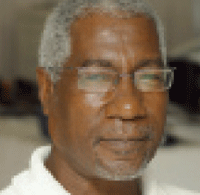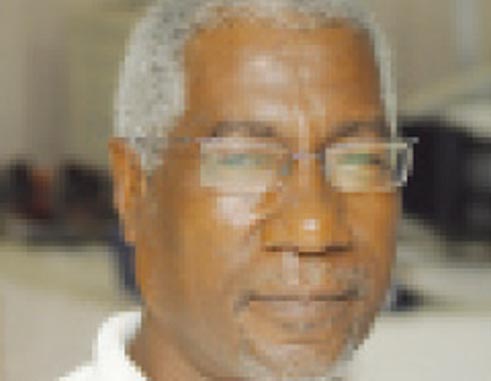
AS the end of the year starts to stare us in the face and we begin the final countdown to 2016, it’s not that hard to reflect and project.
This year (2015) has been a good and bad year for all, but more good than bad I would say, knowing there are also those who will see it the other way. Likewise Christmas: I’ll say it was good despite two killings, others will say the two killings killed it. It all depends on who’s talking. Likewise the politics – but let’s not go there (for now)…
The one thing I thought we couldn’t differ on was Climate Change, but even here we started seeking major differences in interpretation. Take the conclusions of the global climate change summit in Paris earlier this month. If you listen to Sustainable Development Minister Dr Jimmy Fletcher and the CARICOM Secretary General Irwin La Rocque, all went well for the Caribbean, which influenced the meeting all the way and even got a special place in the final agreement. But if you read what Sir Ronald Sanders wrote about the same conference, you will think we lost all the way and the Caribbean left Paris with ‘Didly Squat’.
But then, just before this year ends, just look back at how the climate changed in 2015 around the world just this month, just at Christmas time. Over 150,000 Latin Americans got a very wet Christmas after being forced to evacuate their homes after several neighbouring countries suffered from the worst floods in 50 years. A Christmas tornado tore through Texas and left damage unseen after just a few seconds. And across the Atlantic in the UK, over one hundred Red Alert warnings were issued to address Christmas floods, which seriously exposed the country’s emergency services’ unpreparedness for such eventualities.
In some countries, Christmas 2015 threw up stories ranging from a mother in England working the full year to buy her son over 200 gifts to another English mother who proudly boasted she had also worked a year posing her beautiful body for photos to raise enough money to give her son whatever he wanted this year after failing to give him anything in 2014.
But it was a different story across in Dublin, Ireland, where a teenage boy was killed on Christmas Day riding a scrambler motorbike he had received as a present just hours earlier. The boy, aged 16, collided with another bike at speed in the early morning crash and died in hospital. A Muslim family of eleven in London didn’t have it any better either, when the US refused to allow them to board a plane to Disneyland – without explaining why it looked like Washington was already implementing Donald Trump’s edit to ‘Ban Muslims from entering America!’
Then there as the case in Bethlehem where Christmas 2015 at the famed Church of the Nativity was kept most low-keyed in light of the latest round of the continuing Palestinian-Israeli conflict in which the two sides are exchanging stab wounds for bullets. But then, Pope Francis also refused to wear a bulletproof vest to say Christmas Mass in Rome.
However, Christmas was entirely banned in Oman, where the Sultan decided it has become too much of a Christian religious distraction in that mainly Muslim country.
With Christmas behind us now, we can look ahead to 2016. Here again, depending on who’s talking, there are differences in predictions. There are slight statistical differences in what the world economy will be like in 2016. But all predict one thing in common: 2016 will not be a much better year than 2015.
The Trinidad Express newspaper has reported UN assessments that after six years of strong performance, Latin American and Caribbean economies will slow considerably next year, as the global economic meltdown takes its toll on the region and unemployment rises.
The gross domestic product (GDP) of the 33 Latin American and Caribbean countries will grow a projected 1.9% in 2009, a marked drop from the 4.6% rate a year earlier. That’s according to preliminary figures from the UN Economic Commission for Latin America and the Caribbean (ECLAC).
ECLAC also reports that unemployment will increase to between 7.8% and 8.1% next year, hitting low-income households and those headed by women the hardest — and pushing many workers into the informal economy.
The International Monetary Fund (IMF) says the same about the region, even while acknowledging that Saint Lucia started coming out of the red and going into the black during 2015. The Saint Lucia Prime Minister and Finance Minister says while that’s encouraging news, there’s no need for complacency as “We’re not yet out of the woods.”
But the Leader of the UWP – the island’s major opposition party – says if his party is elected and he becomes Prime Minister and Minister of Finance and Economic Development — and is again put in charge of tourism, he’ll make this the most wonderful place to live every day of the year.
Mr Chastanet says if he becomes the next PM he’ll arrange for Saint Lucians to travel to the USA and Canada without visas. But the man who beat him in Soufriere in the last election says the UWP Leader can only have in mind the transformation of the island into a failed state full of refugees, who are the only persons able to enter the USA and Canada without visas.
I don’t know…
I pressed my annual re-set button on Monday morning to complete the rest of this week and this year during the next four days. On Friday morning I’ll press it again to re-set the set button to 2016, ready to take all it brings our way, General Elections or not!













